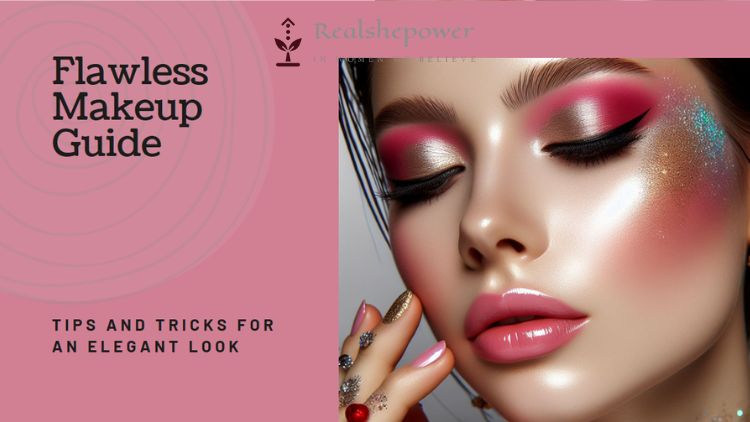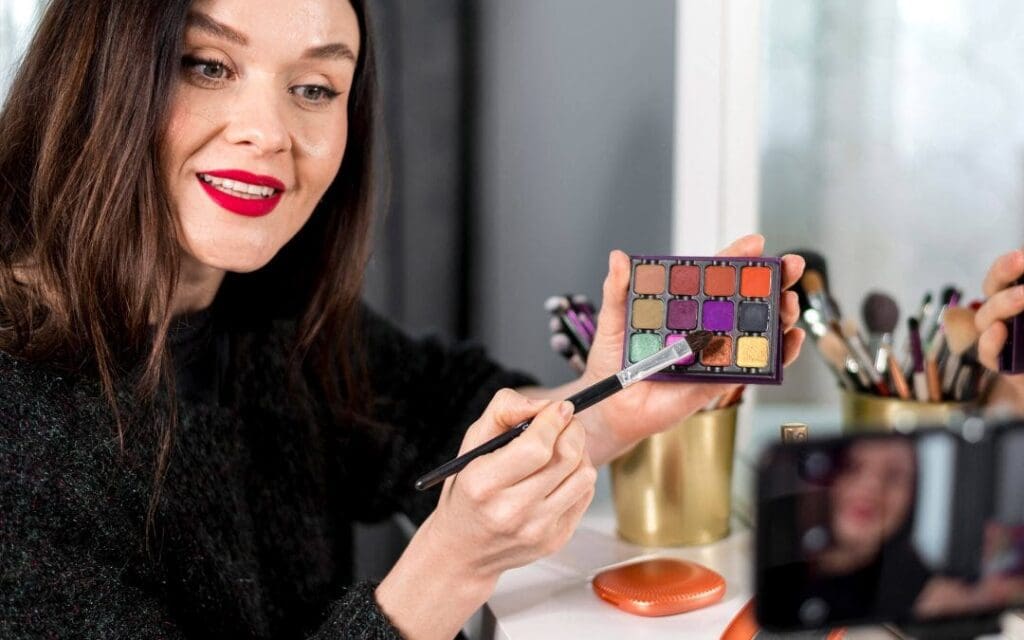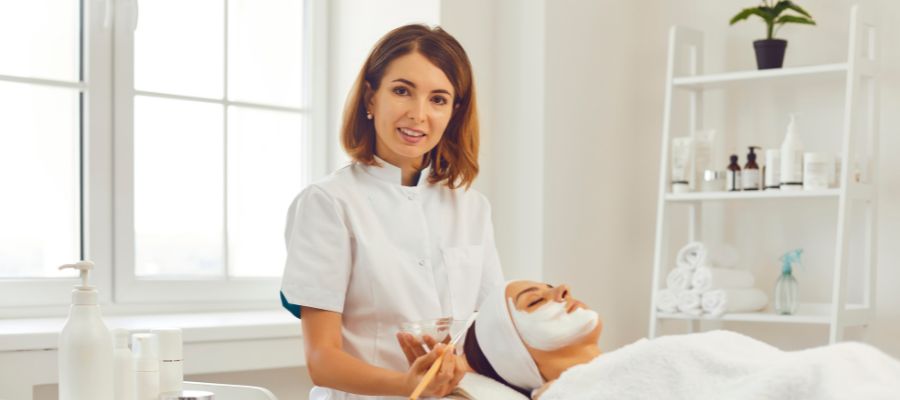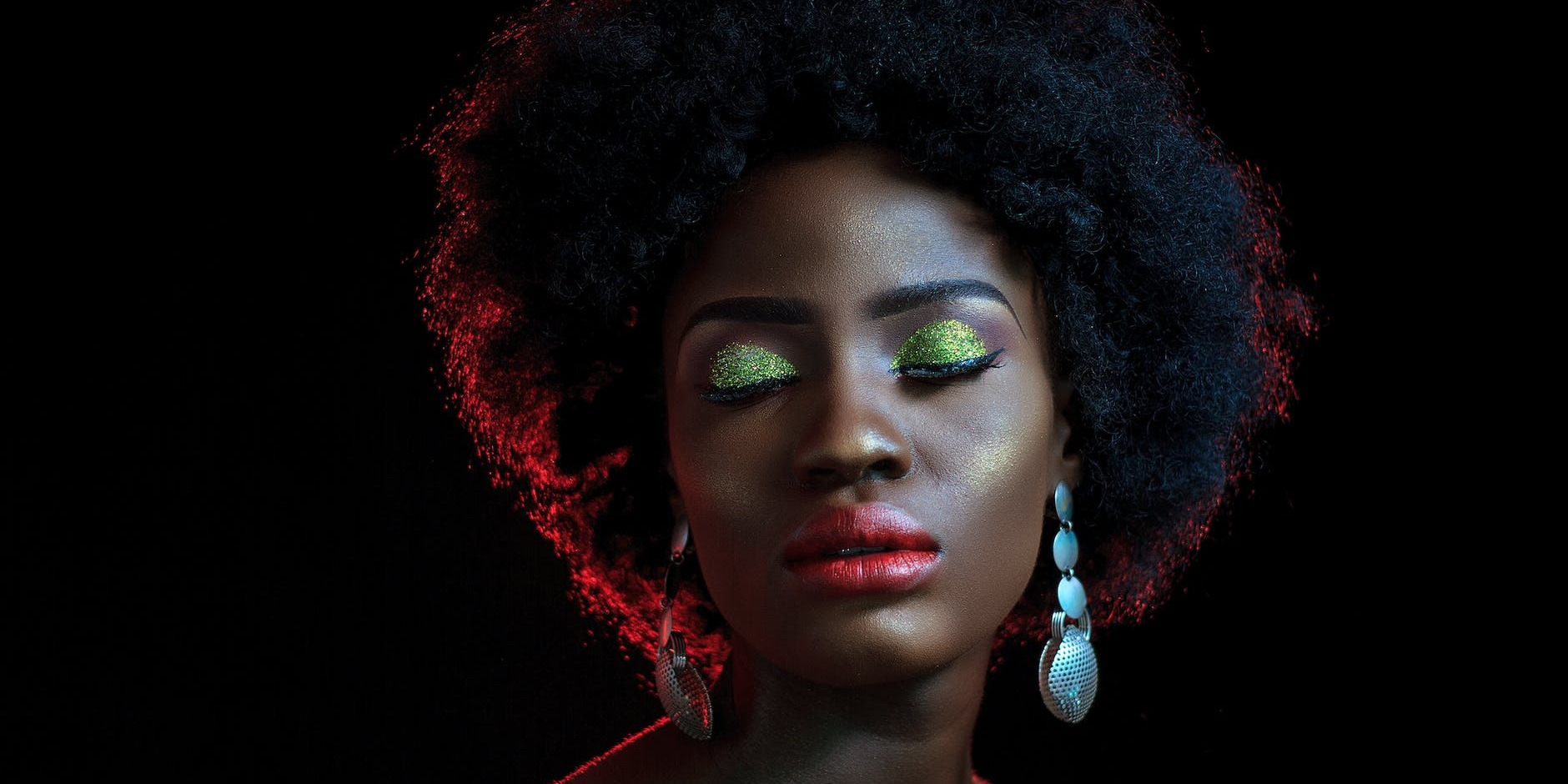Unveiling the World of Makeup Short Courses: A Comprehensive Guide
Related Articles: Unveiling the World of Makeup Short Courses: A Comprehensive Guide
Introduction
With enthusiasm, let’s navigate through the intriguing topic related to Unveiling the World of Makeup Short Courses: A Comprehensive Guide. Let’s weave interesting information and offer fresh perspectives to the readers.
Table of Content
Unveiling the World of Makeup Short Courses: A Comprehensive Guide

The allure of makeup is undeniable. It transcends mere beautification, offering a powerful tool for self-expression, artistry, and confidence. For individuals seeking to delve deeper into the world of makeup, short courses provide an accessible and rewarding avenue. This comprehensive guide delves into the intricacies of makeup short courses, exploring their benefits, diverse offerings, and how they can empower individuals to achieve their makeup goals.
Understanding the Landscape of Makeup Short Courses:
Makeup short courses are intensive training programs designed to impart practical skills and theoretical knowledge in various makeup disciplines. These courses cater to diverse skill levels, from beginners seeking foundational knowledge to seasoned professionals aiming to refine their techniques.
Key Benefits of Enrolling in a Makeup Short Course:
-
Enhanced Skills and Expertise: Short courses provide a structured environment to learn essential makeup techniques, covering everything from basic application to advanced artistry. This equips individuals with the skills needed to create various looks, from natural everyday makeup to bold, theatrical styles.
-
Professional Development: For aspiring makeup artists, short courses offer a crucial stepping stone towards a professional career. These courses equip individuals with the necessary skills and portfolio to enter the competitive makeup industry, whether freelancing or working in salons or studios.
-
Confidence Boost: Learning new makeup skills fosters a sense of accomplishment and personal empowerment. Individuals gain confidence in their abilities to create desired looks, enhancing their self-esteem and overall sense of well-being.
-
Creative Exploration: Makeup short courses offer a platform for creative exploration. Students experiment with different techniques, products, and styles, unlocking their artistic potential and expanding their creative horizons.
-
Networking Opportunities: Short courses provide valuable networking opportunities with fellow makeup enthusiasts, industry professionals, and potential employers. This fosters connections that can lead to collaborations, mentorship, and career advancements.
Exploring the Diverse Range of Makeup Short Courses:
The world of makeup short courses is diverse, offering specialized programs catering to various interests and career aspirations. Here are some common types:
-
Basic Makeup Courses: These introductory courses provide a foundational understanding of makeup application, covering essential techniques, tools, and product knowledge. They are ideal for beginners seeking to develop a solid base in makeup artistry.
-
Advanced Makeup Courses: These courses delve deeper into specific makeup techniques and styles, focusing on areas like special effects makeup, bridal makeup, or airbrushing. They are suitable for individuals with prior makeup experience seeking to refine their skills and explore advanced techniques.
-
Specialized Makeup Courses: These courses cater to specific areas of interest, such as beauty makeup, fashion makeup, film and television makeup, or theatrical makeup. They provide in-depth knowledge and training in the chosen specialization, preparing individuals for specific career paths.
-
Bridal Makeup Courses: These courses focus on creating flawless bridal looks, covering techniques for skin preparation, contouring, highlighting, and eye makeup. They are ideal for aspiring bridal makeup artists or individuals seeking to learn the art of bridal beauty.
-
Prosthetics and Special Effects Makeup Courses: These courses explore the world of prosthetic makeup, teaching students how to create realistic wounds, scars, and other special effects for film, television, and theatre productions. They require advanced skills and are suitable for individuals with a strong interest in special effects makeup.
-
Airbrush Makeup Courses: These courses focus on the art of airbrush makeup, teaching students how to apply makeup using an airbrush machine. This technique provides a flawless, long-lasting finish and is commonly used for bridal makeup, photography, and film.
-
Business and Marketing Courses for Makeup Artists: These courses equip aspiring makeup artists with the necessary business and marketing skills to succeed in the industry. They cover topics like branding, pricing, marketing strategies, and client management.
Choosing the Right Makeup Short Course:
Selecting the right makeup short course is crucial for achieving your desired outcomes. Consider the following factors:
-
Your Skill Level: Assess your existing makeup knowledge and experience to choose a course that aligns with your current skill level. Beginners may benefit from basic courses, while experienced individuals may opt for advanced or specialized programs.
-
Your Goals: Determine your objectives for taking a makeup short course. Are you seeking personal development, professional advancement, or a specific skill set? Align your course selection with your career aspirations and personal goals.
-
Course Content and Curriculum: Examine the course curriculum carefully to ensure it covers the topics and techniques you are interested in. Look for courses that offer hands-on training, practical exercises, and real-world application of skills.
-
Instructor Expertise and Experience: Choose a course taught by experienced and qualified instructors with a proven track record in the makeup industry. Look for instructors who are passionate about teaching and have a strong understanding of the latest trends and techniques.
-
Course Duration and Schedule: Consider the duration of the course and its scheduling format to ensure it fits your personal schedule and commitments. Choose a course that offers a suitable balance of theory and practical training within a timeframe that is manageable for you.
-
Course Cost and Value: Evaluate the cost of the course in relation to its value proposition. Consider the reputation of the institution, the quality of instruction, and the potential return on investment in terms of skill development and career opportunities.
FAQs About Makeup Short Courses:
Q: What qualifications are required to enroll in a makeup short course?
A: Most makeup short courses do not have strict entry requirements. They are generally open to individuals of all ages and backgrounds with an interest in makeup. However, some advanced courses may require prior experience or a portfolio of work.
Q: How long are makeup short courses?
A: The duration of makeup short courses varies widely, ranging from a few days to several weeks. The length of the course depends on the specific curriculum and the level of expertise being taught.
Q: What are the costs associated with makeup short courses?
A: The cost of makeup short courses can vary depending on the institution, the duration of the course, and the level of expertise being taught. It is advisable to research different course providers and compare their fees before making a decision.
Q: Are makeup short courses recognized by industry bodies?
A: Some makeup short courses are accredited by industry bodies, such as the National Association of Makeup Artistry (NAMA) or the Society of Makeup Artists (SMA). Accreditation adds credibility to the course and can be beneficial for career advancement.
Q: What are the career opportunities after completing a makeup short course?
A: Completing a makeup short course can open doors to various career opportunities in the beauty and entertainment industries. Graduates can pursue careers as freelance makeup artists, salon makeup artists, film and television makeup artists, special effects makeup artists, or beauty bloggers and influencers.
Tips for Success in Makeup Short Courses:
-
Be Prepared: Arrive at each class with a positive attitude and a willingness to learn. Come equipped with a makeup kit, a notepad, and a curious mind.
-
Practice Regularly: The key to mastering any skill is consistent practice. Dedicate time outside of class to practicing the techniques you learn and experiment with different looks.
-
Ask Questions: Don’t hesitate to ask your instructor questions if you have any doubts or need clarification on a particular technique.
-
Network with Your Peers: Make connections with your fellow students. Exchange contact information and stay in touch to share ideas, collaborate on projects, and support each other’s growth.
-
Build a Portfolio: Create a portfolio of your work, showcasing your skills and creativity. Include photos of different makeup looks you have created, highlighting your versatility and expertise.
-
Stay Updated: The makeup industry is constantly evolving. Keep up with the latest trends, techniques, and products by attending workshops, reading industry publications, and following makeup artists on social media.
Conclusion:
Makeup short courses offer a transformative opportunity to enhance skills, explore creativity, and unlock career potential. Whether seeking personal enrichment or professional advancement, these courses provide a structured and supportive environment to learn the art of makeup artistry. By embracing the benefits and opportunities presented by makeup short courses, individuals can embark on a rewarding journey of self-expression, artistic exploration, and professional growth.








Closure
Thus, we hope this article has provided valuable insights into Unveiling the World of Makeup Short Courses: A Comprehensive Guide. We thank you for taking the time to read this article. See you in our next article!